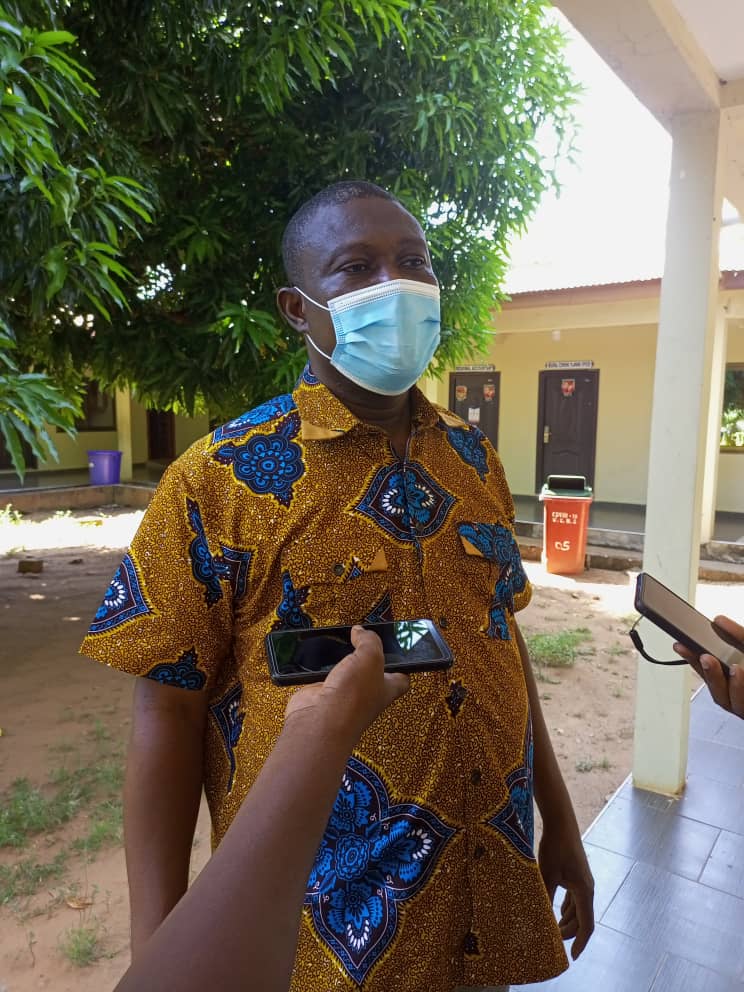www.padfm.com.gh
The Regional Health Directorate in the savannah Region has held it’s weekly stakeholders meeting on Thursday, 25th November, 2021, to update the publics on the state of yellow fever outbreak in the region and the response taken so far by the Ghana health service and it’s partners in fighting the disease.

Briefing the media on the yellow fever outbreak in the Savannah Region, the Regional Director for health services, Dr Chrysantus Kubio explained that even though the region has not recorded new cases in the past week, the current death toll of the yellow fever disease is at 34 with 184 suspected cases.
He noted that, all seven MMDAs in the Savannah region have now recorded cases of the disease with 13 people in the West Gonja Municipality, 8 in the North Gonja district, 3 in the Bole district, 3 in the Sawla- Tuna-Kalba district and 1 in the East Gonja Municipality totaling 34 deaths.
Dr Chrysantus therefore called on residents across the region to get vaccinated since the disease is fast spreading. He cautioned that, every one in the Savannah region should protect themselves by sleeping under treated mosquito nets and also by making sure that their surroundings are well cleaned to prevent mosquito breeds.

The deputy Director for health services, Dr Micheal Biredu in a presentation explained that the yellow fever is a vital disease that can easily be transmitted through a bite from an infected aedes mosquito and that an infected person has an incubation period of between 3 to 6 days before the individual begins to show symptoms of the disease and can happen in settlements such as deep in the jungle, settlements closer to perifery of the jungle (the intermediate) and densely populated (urban) settlements.

He further stated that when one is bitten by the infected mosquito and infected by the virus, it targets some organs of the body such as the liver, heart, kidney and so on which causes clotting disorders a reason why affected persons experiences bleeding from various openings and once it affects those organs and progresses, the organs fails to function which eventually causes the deaths.
Dr Micheal Biredu noted that, Africa records about 90% of yellow fever cases in the world and countries in Africa including Ghana are capable to yellow fever cases and outbreaks and that the high risk groups are those who are unvaccinated, the elderly, infants , farmers, wild life attendants and mobile populations( normads).
Dr. Biredu added that, yellow fever vaccine is an international requirement and mandatory for all travellers to get vaccinated against yellow fever before they can travel.
with the signs and symptoms of yellow fever, he explained that, an infected person may experience a sudden onset of fever, nausea, vomiting, severe headache, general body pains, dizziness, jaundice( yellowing of the eyes) and bleeding but noted that, the symptoms are not peculiar to yellow fever but symptoms of other conditions including malaria.

Source:padfm.com.gh / Kumatey Gorden
0243531604

















